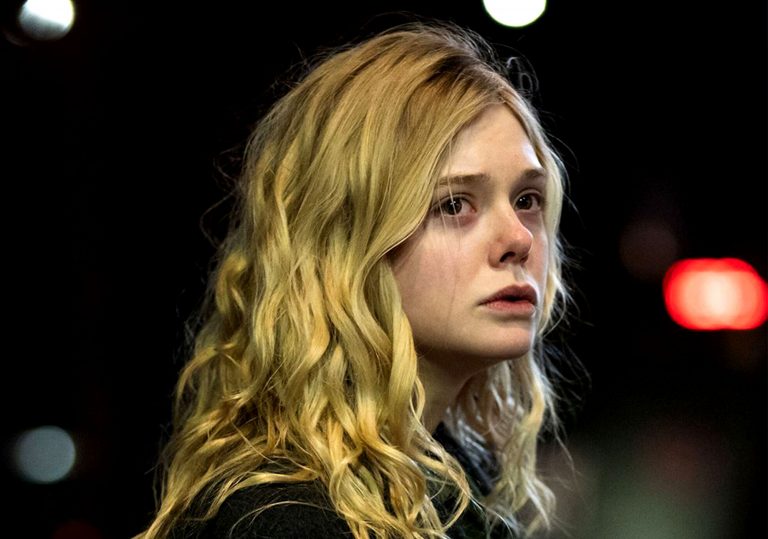Sally Porter has distinguished herself with films such as Orlando and The Party. While her latest film can’t match these standards, this is nonetheless a bold confrontation of memory, illness and mortality like we rarely get to see. An intimate, personalised story – sometimes too personalised – is completed by two strong performances from Javier Bardem and Elle Fanning. What it has in intelligence and empathy, it lacks in gravitas and emotional heft.

Leo (Bardem) is an ageing writer living in New York with what appears to be early onset dementia (it’s never explicitly said, but it seems likely based on his symptoms and behaviour). Despite this, he continues to live alone with only intermittent support. During the approximately 36 hours spent with his daughter Molly (Fanning), Leo reminisces about significant times in his life while his daughter desperately tries to care for him, often at the expense of her own welfare and livelihood.
If it sounds downbeat, that’s because it is. With a brisk sub-90 minute running time, Porter wastes almost no time with comic relief, instead dwelling on the brutal reality of the situation. Leo’s flashbacks feel less like transportations in time and more like he is projecting what little he remembers of his current self into his memories. His absence from the here and now takes a visible toll on Molly – a phenomenal Elle Fanning, who is so visibly torn between her love for her father and the unfathomable burden of taking care of him. Porter uses Molly’s character to make her central points apparent, the workload of her father’s debilitating condition obviously having an impact on her life (like her father, she too is a storyteller – but a journalist rather than an author). Her love for him is clear, and the few lighter moments that Porter’s screenplay blesses us with all involve Fanning’s wonderful talent for connecting with others.

Bardem meanwhile masterfully switches between looks of emptiness and laboured thoughtfulness. As fantastic as he is, Leo is a character overwritten to the extreme. What tries to be moving too often ends up as melancholic or overly dramatic. Too much time is devoted to his own memories and mistakes and not enough to his relationship with Molly, and the absence of this intimacy prevents the story from being a real tear-jerker. The thoughtfulness of the film is admirable, but its impact is sadly minimal.
Perhaps this is a film made for those who can relate to Molly’s experiences. For anybody else, this is nothing like the moving drama it should be. Instead, at its worst it can feel like a tolling, laboured and sometimes directionless trope through memory lane – Leo’s literary-fuelled obsession with a young woman in Greece coming across as especially strange. Fanning and Bardem are fantastic and deserve to share the screen again, but Porter’s capable execution doesn’t yield the Babyteeth-level of response that it so obviously wants.
The Roads Not Taken is out in cinemas now.
